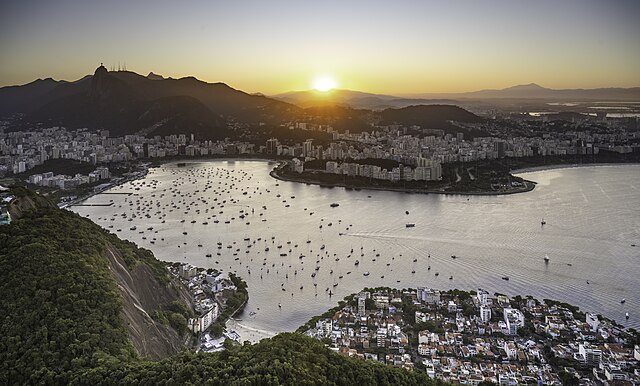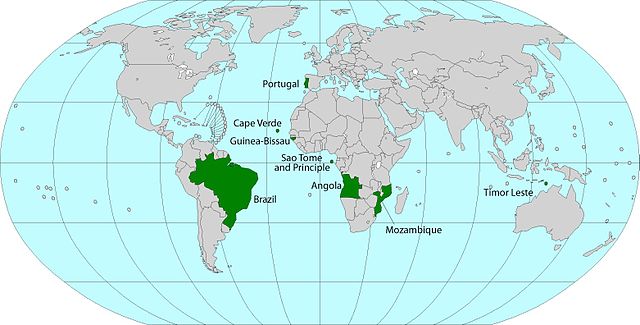The Portuguese language is one of the most spoken in the world, being the official or co-official language in several countries across four continents. These countries form the Community of Portuguese Language Countries (CPLP), an international organization aimed at promoting cooperation and the dissemination of the Portuguese language and culture.
In this article, we will explore these Portuguese-speaking countries, learning a bit more about their unique characteristics. Throughout this linguistic journey, we will discover how the Portuguese language expanded, evolved, and remains alive through generations, uniting millions of speakers in a shared heritage that goes far beyond words.

Portugal
Portugal is the birthplace of the Portuguese language, with a rich history of maritime discoveries. The country was responsible for spreading the Portuguese language around the world starting in the 15th century. It is also the oldest country in Europe, with its borders remaining practically unchanged since the 12th century.
Brazil
With over 210 million inhabitants, Brazil is the largest Portuguese-speaking country, home to the majority of the language’s speakers. Additionally, it is the only country in South America that speaks Portuguese, a result of Portuguese colonization that began in the 16th century.
Angola
Angola is rich in natural resources and is one of Africa’s largest oil producers. After gaining independence from Portugal in 1975, the country experienced a long civil war that only ended in 2002. Angolan music, especially kizomba and semba, has a strong influence on Lusophone culture.
Mozambique
Mozambique is famous for its paradise beaches on the Indian Ocean and its natural reserves. The country gained independence from Portugal in 1975 but also went through a civil war that ended in 1992. The capulana, a colorful fabric, is a symbol of the local culture.
Cape Verde
Cape Verde is an archipelago of 10 islands in the Atlantic Ocean, about 570 km off the West African coast. Cape Verdean music, such as morna and coladeira, has a strong melancholic element and was internationally popularized by singer Cesária Évora.]
Guinea-Bissau
Guinea-Bissau is one of the poorest countries in the world, with an economy based on agriculture and fishing. Guinean Creole, a variation of Portuguese, is widely spoken in daily life. The country has rich flora and fauna, with the Bijagós Archipelago designated as a UNESCO biosphere reserve.
São Tomé and Príncipe
São Tomé and Príncipe is the least populous Portuguese-speaking country. Located in the Gulf of Guinea, it consists of two main islands. The country is known for its cocoa production and rich biodiversity, with several endemic species of plants and animals.
Timor-Leste
Timor-Leste, in Southeast Asia, was colonized by Portugal but has also been influenced by Indonesia and Australia. It gained independence in 2002 after a long period of Indonesian occupation. Besides Portuguese, Tetum is the other official language of the country.
Equatorial Guinea
Equatorial Guinea is the only Portuguese-speaking country where Portuguese is an official language but not the most widely spoken. Spanish and French are the primary languages used by the population. Portuguese was adopted as an official language in 2010 as part of a strategy to integrate with the CPLP.

It is estimated that there are around 260 million Portuguese speakers worldwide, making Portuguese the sixth most spoken language on the planet. Despite sharing the same language, Portuguese-speaking countries have immense cultural and geographic diversity, with different traditions, climates, and histories. The Portuguese language is present across four continents (Europe, South America, Africa, and Asia), making it the only Western language with such reach. With its vast geographic and historical distribution, the Portuguese language serves as a cultural bridge between people from various parts of the world, uniting distinct traditions around a common language.

Matheus Araújo
Matheus Araújo is the founder and editor of Brazilian History. Born in Rio de Janeiro and holding a degree in Advertising and Marketing, his passion for history led him to enroll at the Federal University of the State of Rio de Janeiro, where he is currently pursuing a degree in History Education.
